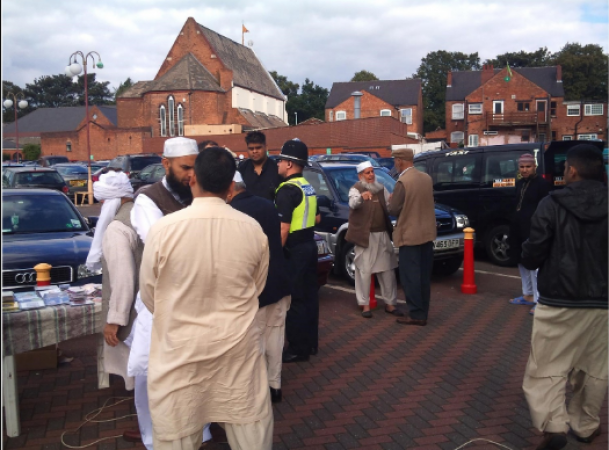
London: The Guardian reported on Friday that more than two-thirds of Muslims reside in local governments in England and Wales with the highest unemployment rates.
In areas where the recorded unemployment rate was as high as one in twenty people between the ages of 16 and 64, according to census data, 2.6 million Muslims reside. According to the data, campaigners are calling on the government to concentrate on Muslim youth as part of its strategy to "level up" Britain's economy.
Muslim unemployment rates in England and Wales were the highest among all religious groups, at 6.7 percent, according to recent data from the Office of National Statistics.
Also Read: UK athletes run the Palestine Marathon and raise thousands of dollars for charity
The percentage of Muslims in England and Wales was 68 percent, compared to only 26 percent of Christians and 25 percent of atheists who reside in areas with the highest unemployment rates.
Seven percent of people of working age are looking for jobs in the three local authorities with the highest unemployment rates in the nation: Wolverhampton, Birmingham, and Newham in London. According to the ONS, younger Muslims are more likely to be in school than young people in the general population, so age trends among Muslims compared to other groups may be a contributing factor to the statistics.
The percentage of students in the group who declared themselves to be Muslims in the census was nearly twice as high as the rate observed in England and Wales as a whole.
Also Read: UN accuses Russian and Ukrainian forces of carrying out "summary executions" of detainees
A representative for the Muslim Council of Britain (MCB) responded to the census results by saying: "The inter-generational cycles of poverty impacting British Muslim communities can result in young people being forced to leave education in pursuit of work so they can help support their families.
Islamophobic prejudice and discrimination may be present in the workplace for those who are successful in breaking into the job market and pursuing their chosen careers. According to a study published in the Ethnic and Racial Studies journal last year, prejudice played a part in the development of the "Muslim penalty" in Britain, where practising Islam was seen as a "significant barrier" to employment.
The MCB representative continued, "Leveling up is not just a priority for our rural communities in the post-COVID-19 economic reality. In the centre of inner cities, where populations of minority ethnicities and Muslims may reside, targeted support is required.
Also Read: US and Canada close the border crossing loophole for asylum seekers
The dynamism and sheer potential of young British Muslims will demonstrate itself to be a strategic national asset given a level playing pitch.